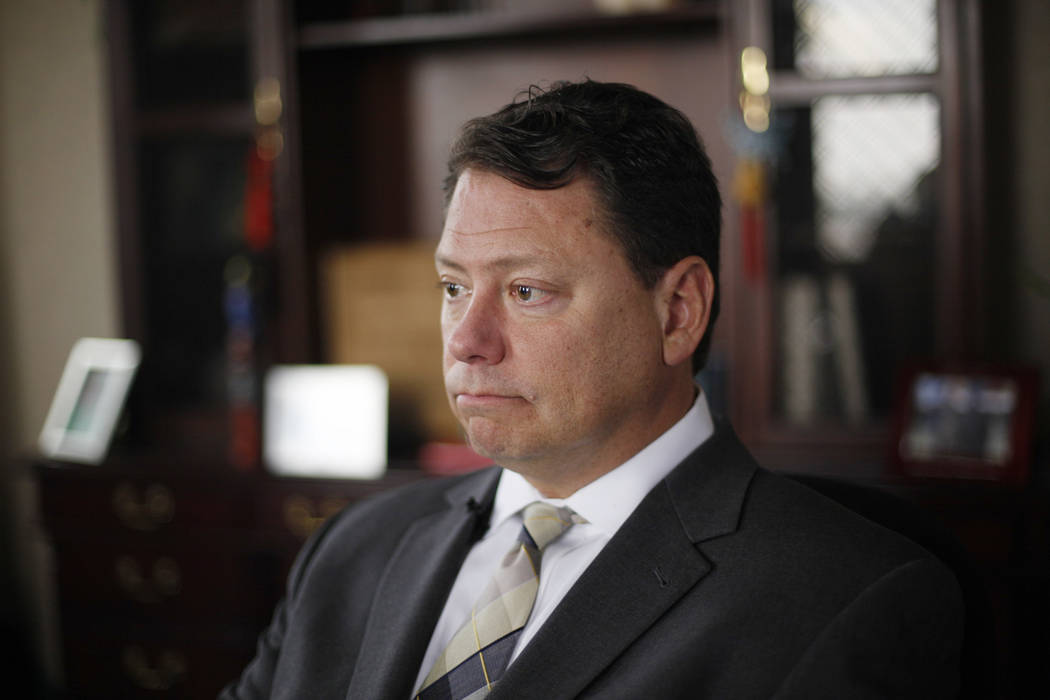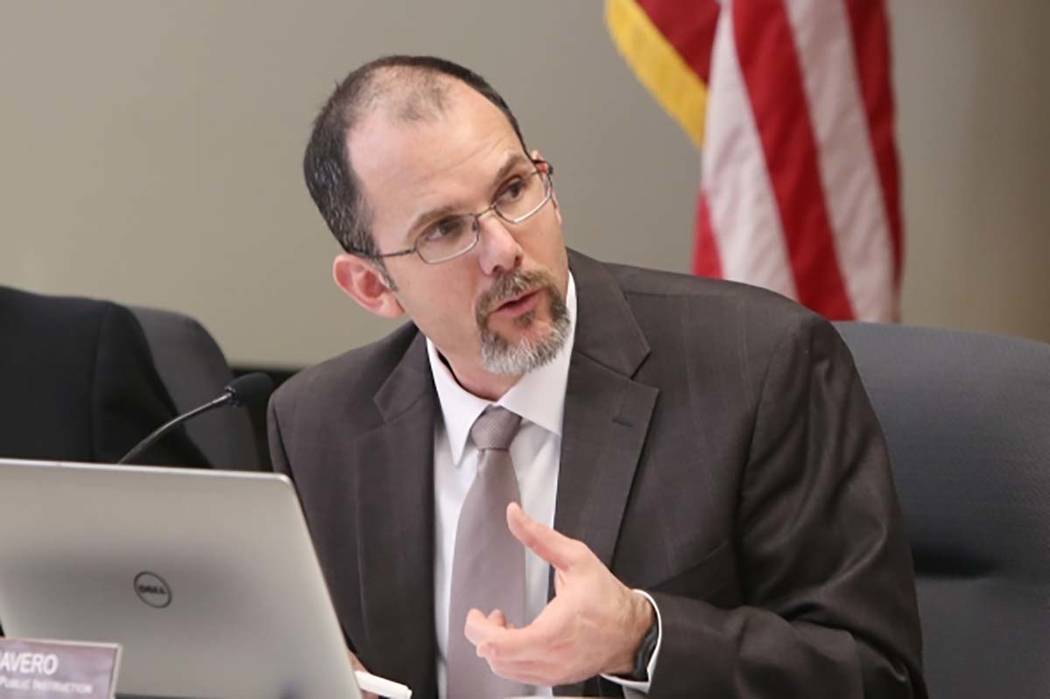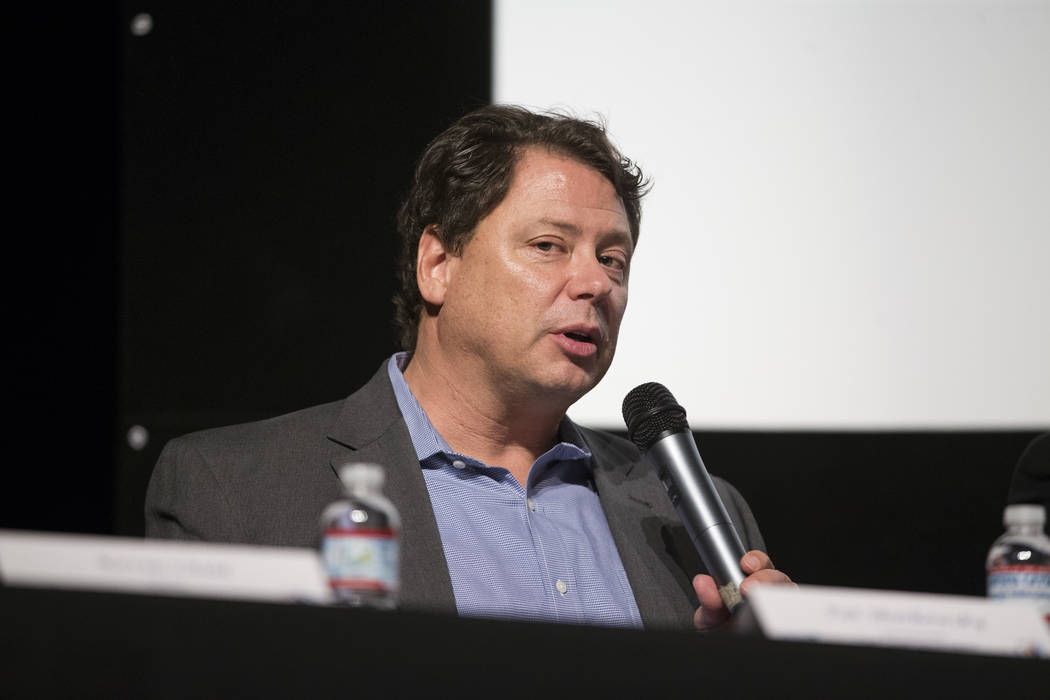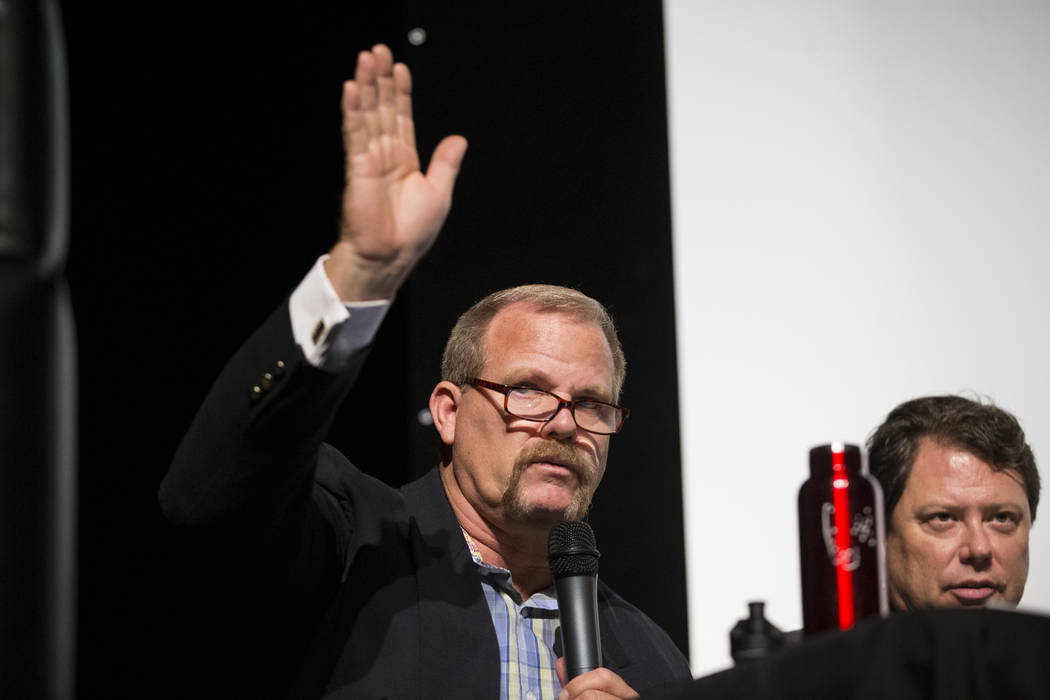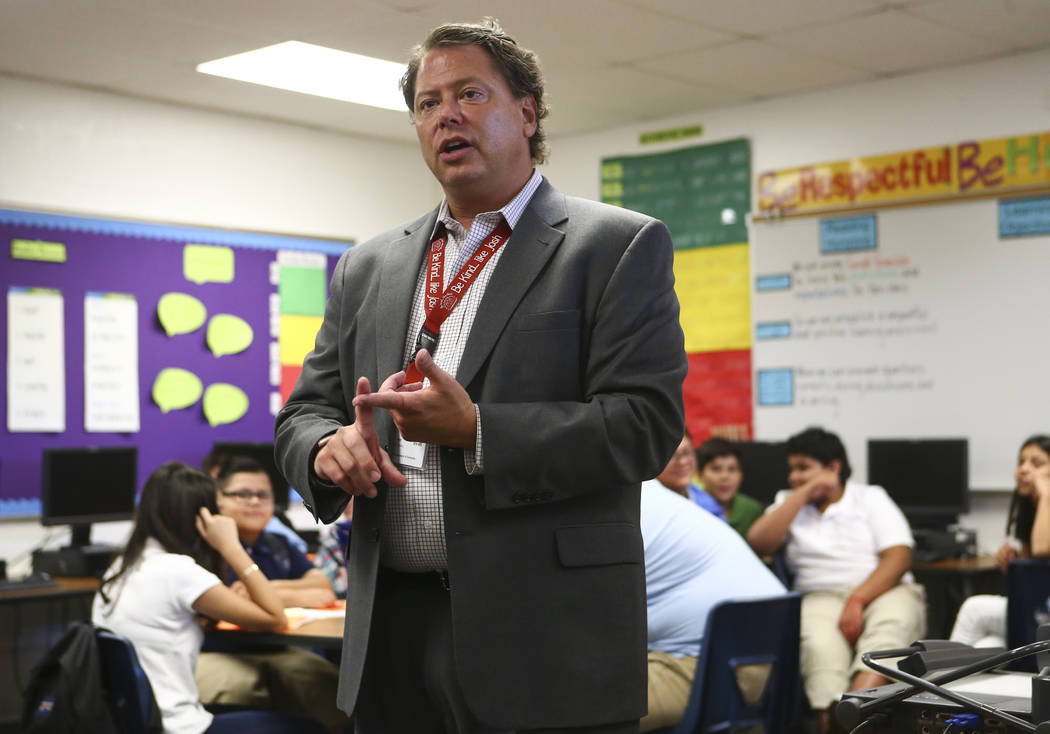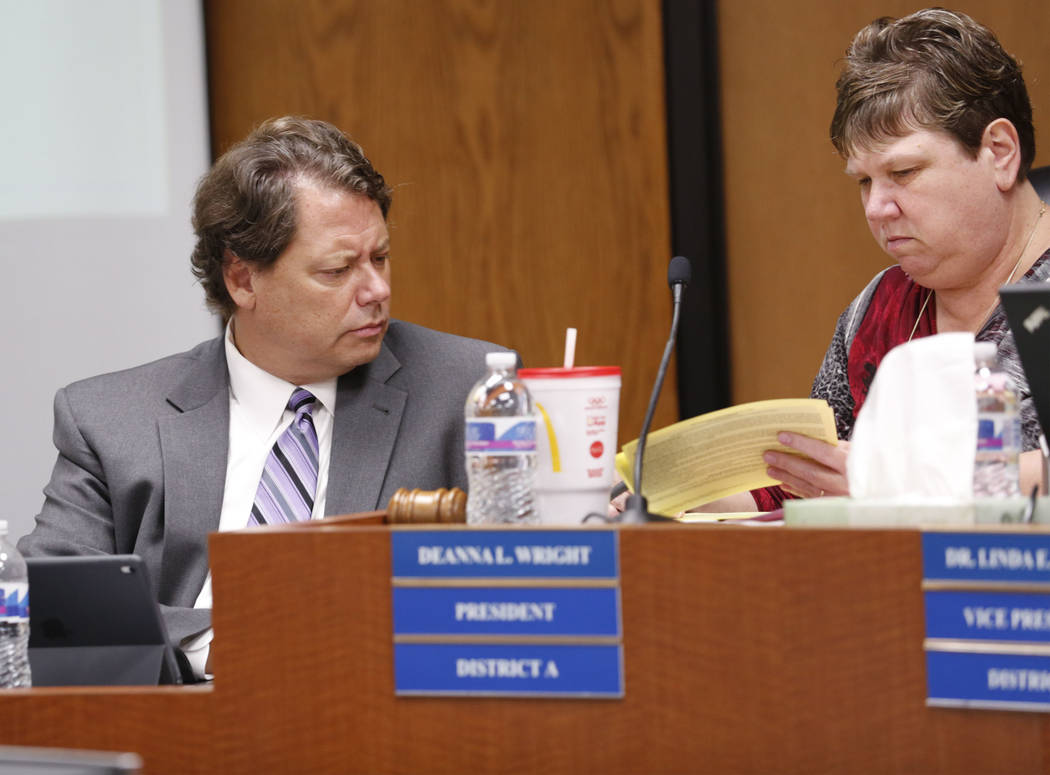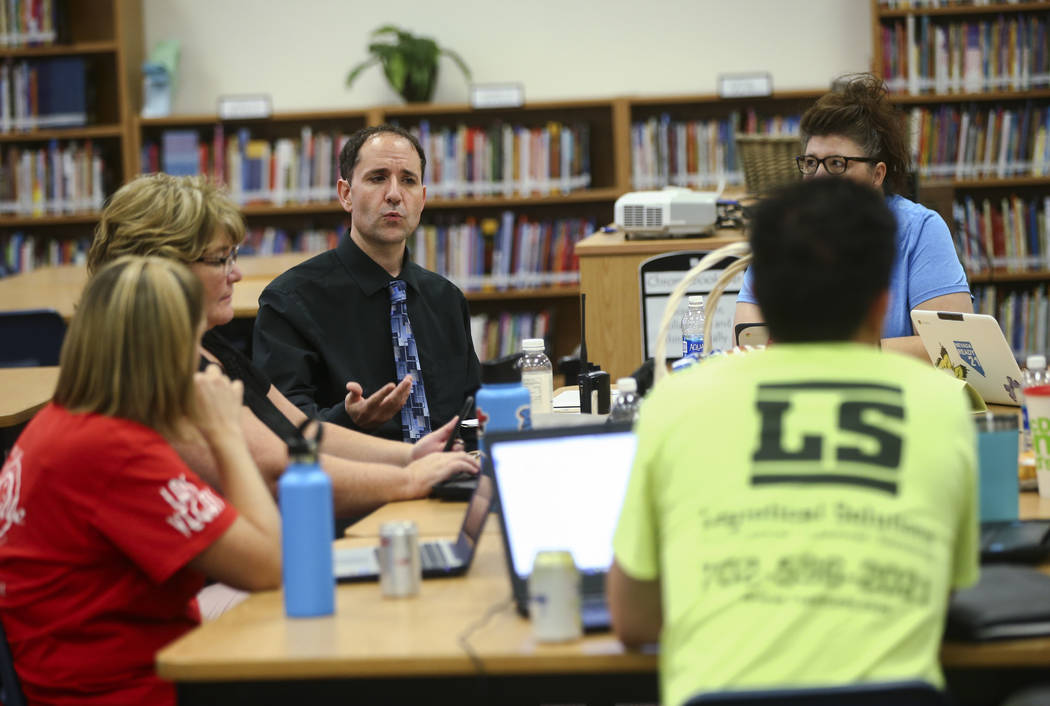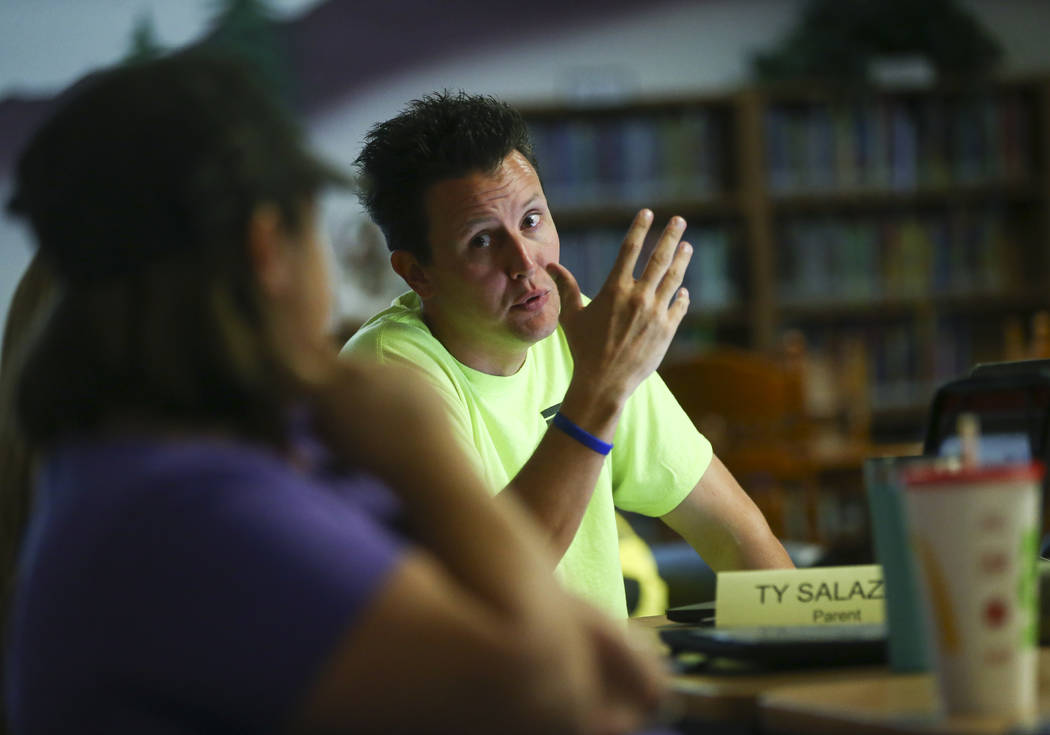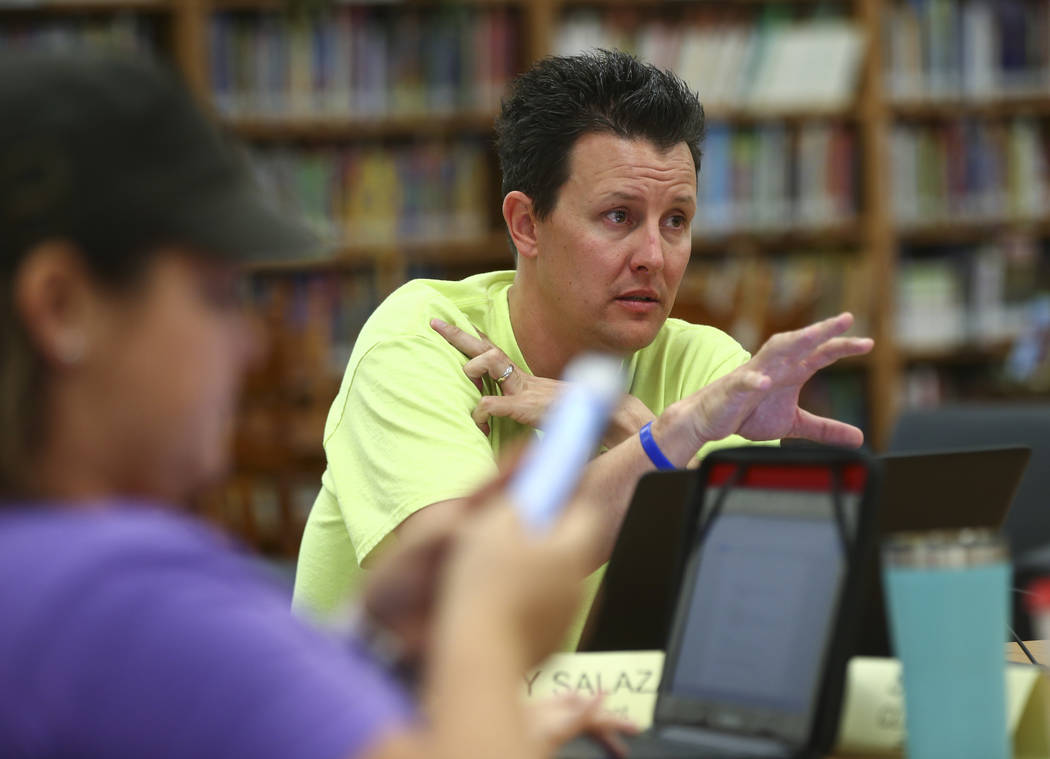Blame state labor laws for CCSD budget deficit
The budget crisis facing the Clark County School District is no surprise. Superintendent Pat Skorkowsky predicted it just 19 months ago.
In January 2016, CCSD negotiated a two-year contract with its teachers that boosted pay across the board. Entry-level pay jumped from $34,637 to $40,900 per year. The top of the pay scale soared from $72,331 to $90,877. Neither of those amounts includes teacher benefits, which range in annual cost from $14,000 to more than $30,000.
The pay hikes came at a huge cost: $135.5 million. Asked at the time how CCSD would afford the increase, Skorkowsky had a direct answer.
“Cuts.”
There were immediate cuts to CCSD’s maintenance and human resources budgets. Then CCSD mistakenly offered veteran teachers an even more generous salary advancement than agreed to via its Professional Growth System. You’re seeing the results of that now — $70 million to $80 million in cuts coming, likely including teacher layoffs.
CCSD blames the state for not giving it enough money. State Superintendent Steve Canavero pushed back and blamed CCSD for mismanagement. They’re both wrong.
The main culprit: Laws governing collective bargaining for Nevada public employees.
It’s easy to assume that CCSD was financially negligent for agreeing to such massive pay hikes for its teachers. Clearly, it was a poor financial move. But what alternative did the School Board have to reduce costs?
If CCSD and its teachers union didn’t agree on a deal, the dispute would have gone to binding arbitration — where the result could have been even worse. That’s what happened when CCSD couldn’t reach an agreement with its administrators. It offered $6.2 million in raises over two years. The administrators balked, and — per state law — the dispute went to binding arbitration. An unelected, unaccountable, out-of-state arbitrator ruled in May that CCSD had to give administrators raises worth $19.5 million.
Raises if you negotiate. Raises if you resist. All thanks to state law.
This is why CCSD so often is in a budget crisis.
It’s also why more tax money won’t fix CCSD’s budget problems. In awarding administrators the higher raises, the arbitrator — following state law — determined the system could afford it.
You read that right. Give CCSD more money, and all you do is increase unions’ ability to get pay raises.
It’d be like going into a store, telling the owner how much money you have and watching him raises prices on the items you have to buy.
That’s where there’s plenty of room to criticize all involved. By attacking each other, Skorkowsky, the School Board and Canavero are keeping the public in the dark about how state law inevitably creates these crises.
Point the finger where it belongs: the Legislature. Democrats are loyal to the union bosses who benefit from Nevada’s collective bargaining laws, and Republicans didn’t enact major labor reforms when they had the votes to do so in 2015.
This predictable crisis can be fixed, but it starts with Nevada’s education leaders assigning blame to the right place.
Victor Joecks’ column appears in the Nevada section each Sunday, Wednesday and Friday. Listen to him discuss his columns each Monday at 9 a.m. with Kevin Wall on 790 Talk Now. Contact him at vjoecks@reviewjournal.com or 702-383-4698. Follow @victorjoecks on Twitter.



